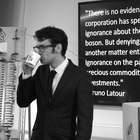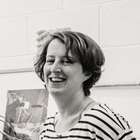Invisible Worlds residency 2019 - The Intergalactic Estate Agency
Posted Nov. 18, 2019 by Amber Griffiths and Austin HouldsworthInvisible Worlds Residencies are a collaboration between the Eden Project and FoAM, funded by the Wellcome Trust and Arts Council England, based at the Invisible Worlds exhibition at the Eden Project. Austin Houldsworth was selected as the 2019 Invisible Worlds resident - from an open call attracting applicants from Europe, South America, Asia and Australia with projects and backgrounds in farming, illustration, renewable energy, sculpture, horticulture, poetry, genomics, choreography, clinical medicine, music and programming, amongst many others.
Austin pitched a residency project on the societal impacts of climate change, with a heavy dose of humour and satire, inviting people to think about how and when it would be time to sell parts of our planet via the Intergalactic Estate Agency. For 2019 we shifted the focus of the residencies onto fully involving the visitors at the Eden Project - a tough ask with several hundred passing through the space on any one day. The residency format was modified so that the resident would first visit the site, then have time to re-jig any plans to better work with the space/audience, then come back to try out their ideas.
Below are Austin's words, images and video about his residency.
***
Prior to the Eden residency, way back in 1988, I was walking to the playground in primary school when I decided to point at somebody (the details of the event are sketchy). However, I do remember Mrs Fisher leaning over to me and telling me “Austin, when you point there are always three fingers pointing back at you.” Although a cliché, back then this comment made me think. It taught me a useful lesson, namely not to be too judgy as no-one is a beacon of righteousness and sometimes it’s simply not helpful. I have come to believe that even the act of judgment can undermine any meaningful change in the accused.
Fast forward 30 years and I have been selected for a residency at the Eden Project and FoAM, which was very exciting (I have come a long way since my predicted E in GCSE art). The topic/idea surrounding the residency brought back that bit of humble pie I experienced all those years ago at primary school. Of course, the context and content was deeper than some kid not doing something or other. Rather, the finger was pointing at something far larger and more complicated; Climate change or Global warming (as it was called back in school). The pointy fingers relating to this subject are rather more numerous than the five digits attached to our hands – a bigger challenge than those parameters allow. But nevertheless, I became acutely aware that I might be making the same mistake I made all those years ago in primary school.
When I was selected for the residency, I proposed an idea to the lovely FoAM and Eden Project folk that I would create the ‘Intergalactic Estate Agency.’ - an interactive installation that would help people sell their properties on the intergalactic market, as there might be fewer earthbound buyers of properties in the future, and some countries could see a 90% decline in GDP, which is likely to have profound effects on land value. What I liked about this idea is it would contextualise climate change not in some abstract way, nor righteous way, but in a completely self-interested way around something many people care about and understand – house prices. I initially thought the setup would be a participatory experience where homeowners could be advised by the ‘Intergalactic Estate Agent’ on when to sell.
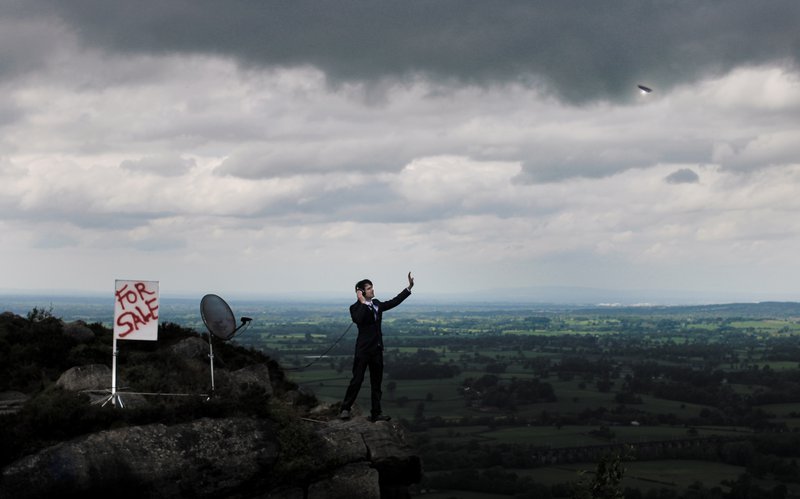
All the above made sense until I visited the Eden Project on a reconnaissance trip and experienced the space, the people and the buzz that made me have a rethink. Prior to this I was thinking in my art and design bubble, rather than thinking what might engage the diverse people who visit Eden.
Thus the focus shifted away from the intergalactic housing market parody onto the system used to compose the sales messages. I designed and made a mechanical Morse code messaging machine - a future-proof design that could be maintained and fixed even if society and all its institutions collapse. The reason for using Morse code is to keep consistency; the first commercially viable wireless transmitter & system was developed by Guglielmo Marconi in 1895 which transmitted a Morse code message over a 2 mile distance – very short compared to space distances, but it was a start. The Russians stuck with the same format when their ‘Morse message’ transmitted the word ‘peace’ in 1962 to Venus via Yevpatoria Planetary Radar. Hence, I thought it best to keep the same format in order to avoid confusion. Alongside the messaging machine were some drums to communicate the urgency of the chosen message and a keyboard to communicate the feeling behind the message.
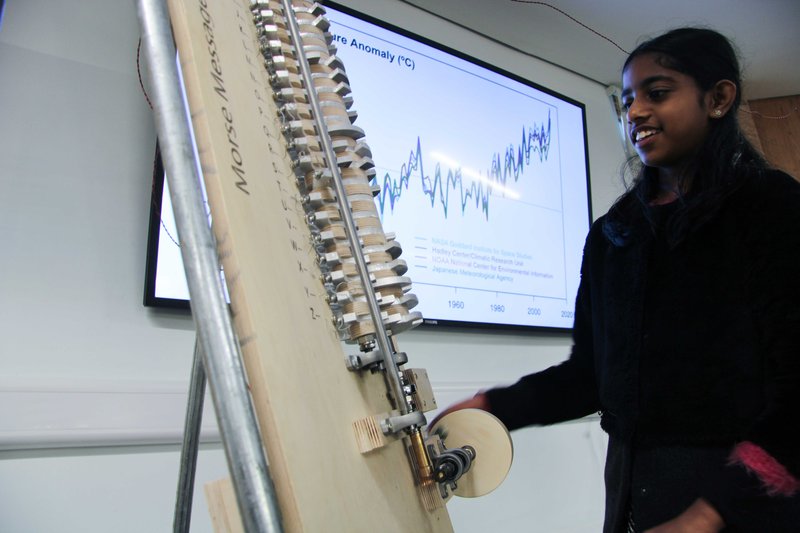
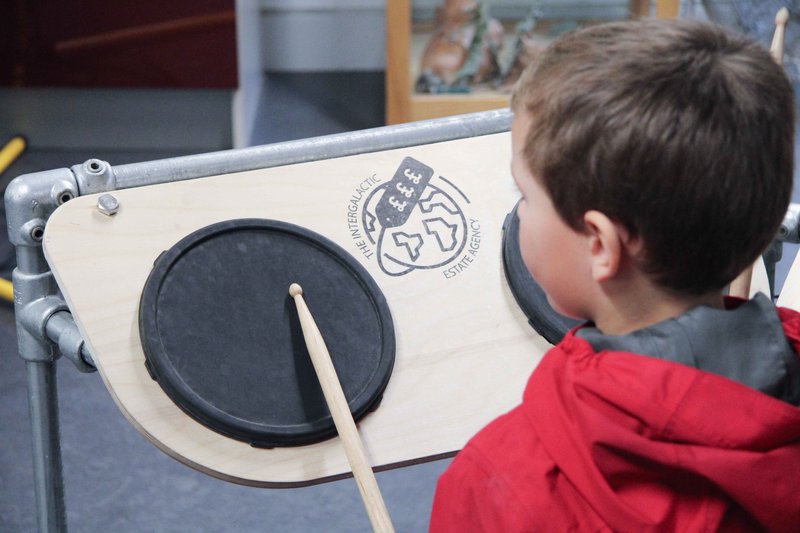
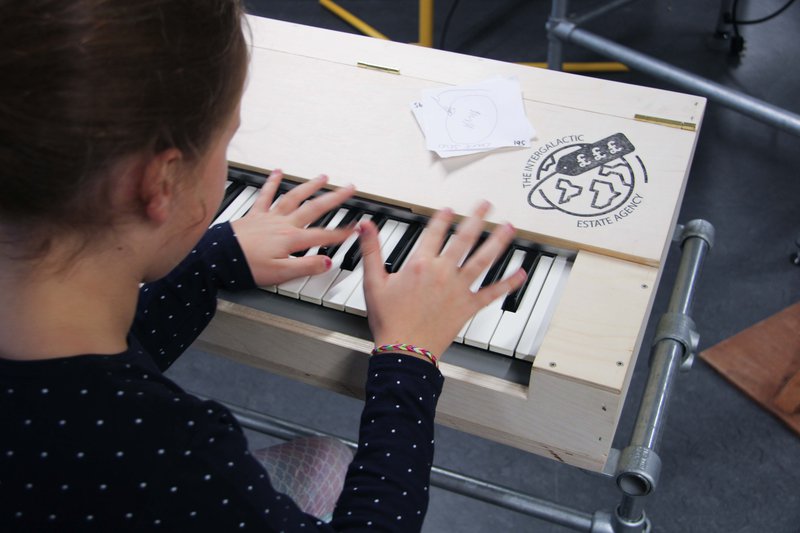
After some fine tuning, we began recording the messages from the Invisible Worlds lab space! There were families wanting to form a galactic band, couples wanting to do a starry eyed harmonies, heavy metal festival goers wanting a spaced out experience and even an OAP drummer; people certainly had fun. But they needed to think and compose a message of what they deemed valuable on our planet. The answers were diverse, from plants, oxygen, micro-organisms, water, human slaves and even ‘Pegasus’.
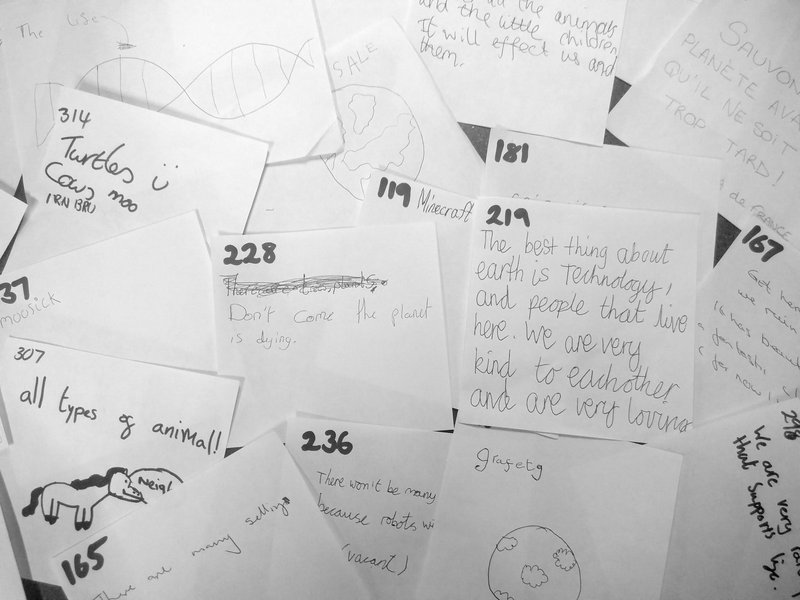
One particular boy who was aged about 7, listened to my spiel intently. Saying absolutely nothing he proceeded to pick up a pen, scratched his head, and pontificated for a long time. I asked him, "Do you need any help," to which he replied "no, no, no, just give me a minute". This was just one example that highlighted the care, consideration and imagination that the children applied to this rather odd task – not one questioned my sanity, they just set to work in thinking about what from their perspective made our home so valuable. We managed to record 600 messages in total!
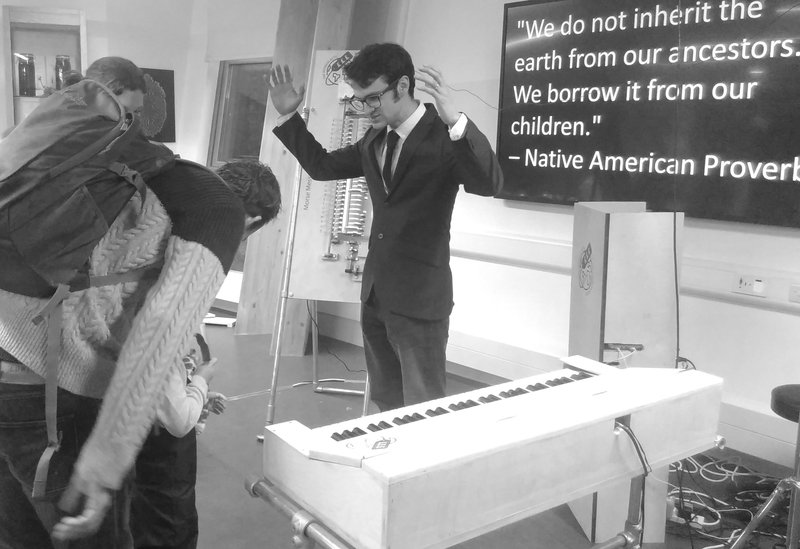
At the end of the residency my head was spinning and my ears were ringing, and in all honesty a part of me was pleased it was over. But it had also been immensely valuable, I can’t say with any certainty that I changed any hearts or minds but it certainly did change my perspective. Initially I had very little hope for humanity's future in the shadow of devastating climate change. However, over the course of the 10 day period only one solitary child said the most valuable thing on our planet was money, while 99% of the children chose a natural phenomenon unique to our planet that sustains life or our way of life. Thus, through this residency I became acutely aware that generation alpha might actually live up to their name.
So may I suggest that us old obsolete generations limit our negative impact as much as we possibly can, in order to give the Alphas a fighting chance - because at Eden I saw that they might just hold the keys to a new start.
Created: 15 Jul 2021 / Updated: 23 Oct 2021






